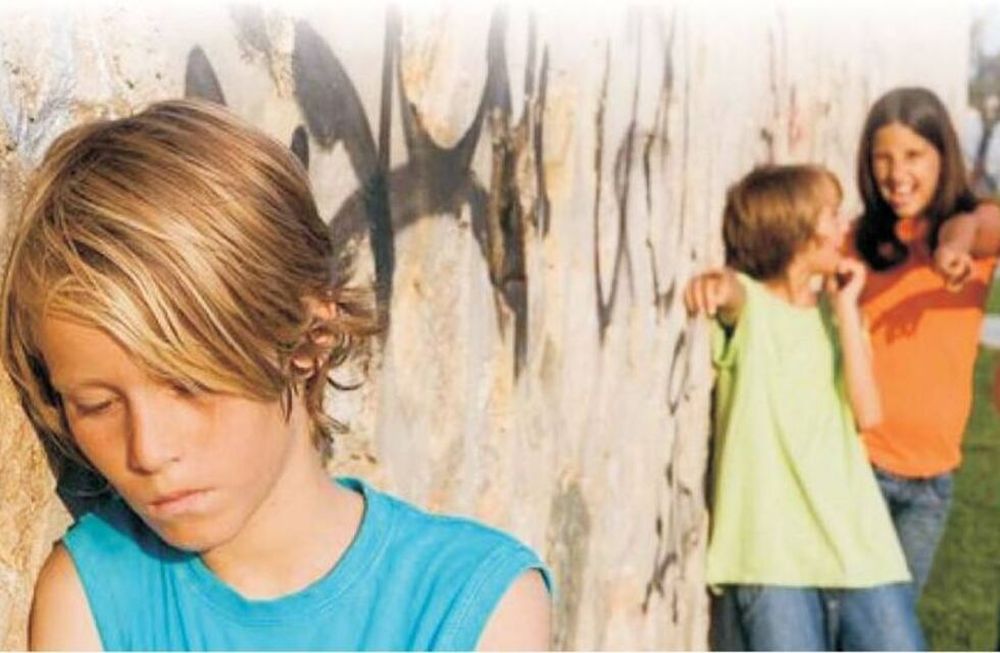Carina Gannam explained on Aconcagua Radio how the DGE strengthens school support in cases of bullying.

In an interview withAconcagua Radio , Carina Gannam, Director of School Support at the DGE , stressed that the objective of her area is to ensure that each student has a listening space to express situations of violence : “From the School Support Directorate at DGE we encourage and strengthen this idea that they have to talk and be able to have that listening space for this type of problems and all violence in general.”
Although bullying isn't a new phenomenon, its visibility has increased. "It's true that there's more violence, but it's more common in society. It's not limited to children and adolescents. We adults need to reflect on it, because we're always role models," she noted.
The psychological damage of bullying lasts for years

The psychological damage of bullying lasts for years
Gannam explained that there are action protocols for all three educational levels—preschool, primary, and secondary—that include the intervention of mental health professionals such as psychologists, educational psychologists, and speech therapists. He also emphasized that these teams have been more present in schools since this year: "In preschool and primary, there is a DAES professional in each school, with a set schedule and day."
Once a situation of violence between students is detected, an institutional approach begins, involving both the victim and the aggressor. "It's not just the child or adolescent who suffers from the situation of violence, but also the aggressor. We have to determine the cause of this behavior," he explained.
When the team believes the case requires prolonged treatment, they are referred to the health system: "We also take care of getting an appointment, determining where they need to go, and which professional, as part of the service provided by the DGE."
One of the challenges facing institutional intervention is the rejection or denial by some families. However, Gannam was clear: "If the parents don't agree with that, we act with full authority from the provincial government, in this case, the DGE."
The official explained that the School Support Department is part of the rights protection system, along with the Interdisciplinary Technical Teams (ETI), and that they have the obligation to act when a bullying situation violates a student's well-being: "If this impacts their educational trajectory, their overall well-being, we have to act."
Reporting and follow-up toolsIn addition to field work, the DGE has enabled a dedicated reporting channel since last year: 148, option 4. "We receive all complaints and emerging problem situations. We generate a ticket that has a 72-hour turnaround. It reaches the team assigned to the school, and the response is taken. The person who reported it is then informed of what was done about the case," he explained.
Gannam emphasized that the province is fully covered by these teams, and that every school administrator knows which professional is assigned, what day, and what time. In the absence of urgent situations, the teams work on prevention through workshops and activities: "We work continuously with workshops, activities, and resources to bring students and families closer to these issues. This is very important for them to know."
Advances in data and monitoringRegarding statistics, Gannam explained that adjustments are being made to the Mendoza Education Management System (GEI, formerly GEM) to obtain more accurate information on bullying in schools. Although there is currently no specific census on this issue, the DGE is implementing the first provincial census on online gambling in schools.
"We are working to obtain more precise measurements and develop strategies tailored to each region and situation, because the situation is not the same in each department of the province," he added.
Reorganization in LavalleAt the end of the interview, Gannam answered a specific question about Team 51 in the Lavalle department. He confirmed that it was relocated by decision of the principal, in order to improve care: "Considering the evaluations we conducted with the school principals regarding the professionals' interventions, we decided to send them to other schools. We wanted more in-person attendance."
And he closed with a clear message about his management's commitment: "We want managers to now see that there's a professional on staff every day and at every time. This didn't happen before."
Listen to the full article here, and you can listen to the radio live at www.aconcaguaradio.com .
losandes





